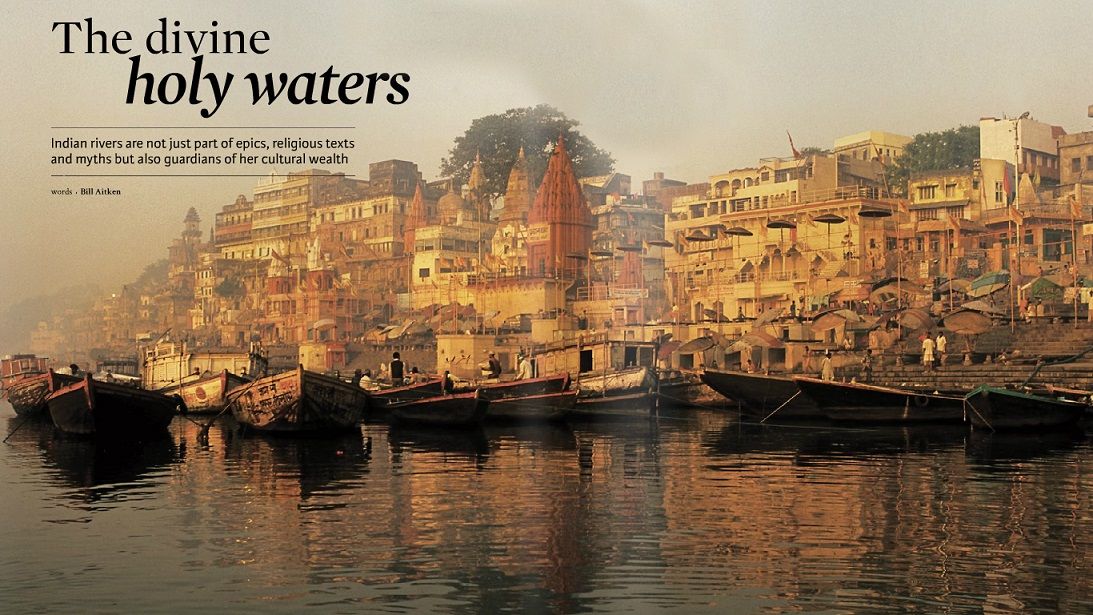From the beginning of recorded history, India has honoured her rivers, both for their beauty and their blessings. Seven of these rivers were singled out for recognition as goddesses, not for their hydrological profile but for the sacred and cultural associations surrounding them. Indian Riveres are not just part of epics, religious texts and myths… Continue reading The Divine Holy Waters
Category: History
India has a history going back thousands of years and a prehistory going back hundreds of thousands of years. almost five thousand years ago, the inhabitants of the Indus Valley Civilisation had developed an urban culture. In the long march of centuries, India has witnessed the rise and fall of several empires and conquerors. There have been various dynasties fighting battles among themselves and against foreign invaders
The Lotus in Indian Art
In the vast repertoire of Indian ornamental motifs, among the symbols and devices that recur in traditional art and architecture, the lotus occupies pride of place. Unlike western art, in which great emphasis is laid on photographic realism and the naturalistic treatment of human and animal forms, the main concerns in Indian art are profoundly… Continue reading The Lotus in Indian Art
Kalaripayattu – Mother of all Martial Arts
Martial arts are often attributed to South-east Asian countries, namely China, Japan and Korea. However few people know that the idea of martial arts originated in a least expected part of the world. The region is none another than the Indian sub-continent. Kalaripayattu Kalaripayattu is the ancient martial art of South India based on the science of… Continue reading Kalaripayattu – Mother of all Martial Arts
Contributions of Sikhs as Soldiers and Warriors
Sikhs by nature are respectful, courageous, hardworking, and enterprising. Look into their short span of history and you will find their pitcher is full of sacrifices and hard work which has contributed so much towards the building of the Indian nation. If not for them, the course of Indian History would have been very different.… Continue reading Contributions of Sikhs as Soldiers and Warriors
Transmitting Knowledge: Oral memory, practice and methods of communication of India
In India, oral transmission of knowledge still continues to be the most important method by which we communicate messages, educate our children on early lessons, learn our scriptures and texts, transmit our stories and nurture knowledge about life and art. All cultures have found ingenious ways to pass on their knowledge systems, through developing formal… Continue reading Transmitting Knowledge: Oral memory, practice and methods of communication of India
History of The Indian Rupee
India was one of the first issuers of coins (circa: 7th/6th century BC), and as a result it has seen a wide range of monetary units throughout its history. There is some historical evidence to show that the first coins may have been introduced somewhere between 2500 and 1750 BC. However, the first documented coins… Continue reading History of The Indian Rupee
Nikola Tesla was Influenced by Swami Vivekananda
Nikola Tesla (1856-1943) was the genius who lit the world, whose discoveries in the field of alternating polyphase current electricity advanced the United States and the rest of the world into the modern industrial era. As early as 1891 Tesla described the universe as a kinetic system filled with energy which could be harnessed at any location and invented many… Continue reading Nikola Tesla was Influenced by Swami Vivekananda
Diamond Mining in Ancient India
The diamonds have been first recognized and mined in India. For centuries, India was the only place one could find these precious stones. The earliest known reference to diamond is a Sanskrit manuscript, dated from 320-296 B.C., but Diamonds have been known in India for at least 3,000 years but most likely 6,000 years. The words… Continue reading Diamond Mining in Ancient India
Sikh Soldiers – The Forgotten Heroes of World War I
With the outbreak of war in Europe, India, the Crown Jewel of the British Empire, joined the Allies in battle on the 4th of August 1914. Contributing the most volunteers of any of the British imperial holdings that fought in the war, India produced between 900,000 to 1.5 million troops for combat by 1919. One in… Continue reading Sikh Soldiers – The Forgotten Heroes of World War I
Acharya Kanad – The Father of Atomic theory
John Dalton (1766 – 1844) is the man credited today with the development of atomic theory. However, It would be surprising for many people today to know that the theory of atoms was actually formulated 2,600 years ago by an Indian sage and philosopher. The first Indian philosopher who formulated ideas about the atom in a… Continue reading Acharya Kanad – The Father of Atomic theory

